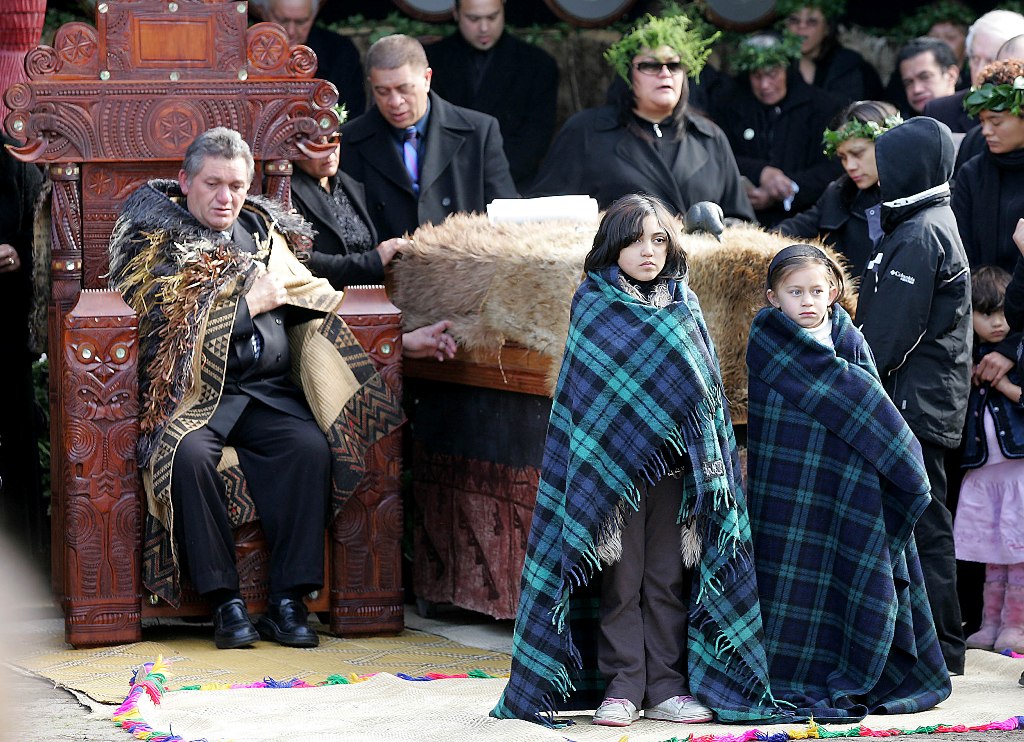WELLINGTON (AFP) – The king of New Zealand’s Indigenous Maori people died on Friday while recovering from heart surgery at age 69, with aides saying he had “passed to the great beyond”.
King Tuheitia passed away peacefully surrounded by family, a spokesperson said, just days after celebrating the 18th anniversary of his coronation.

He had been in hospital recovering from heart surgery.
“The death of Kiingi Tuheitia is a moment of great sadness,” the spokesperson added in a statement. “A chief who has passed to the great beyond. Rest in love.”
The Kiingitanga – Maori King movement – was founded in 1858 with the aim of uniting New Zealand’s Indigenous Maori under a single sovereign.
The position has significant political and symbolic weight, but carries no legal status.
New Zealand’s Maori currently make up about 17 per cent of the population, or about 900,000 people.
King Charles III, New Zealand’s formal head of state, said he was “shocked” by the news, having recently spoken to King Tuheitia by phone.
“My wife and I were profoundly saddened to learn of the death of Kiingi Tuheitia,” the king said in a statement.
“I had the greatest pleasure of knowing Kiingi Tuheitia for decades.
“He was deeply committed to forging a strong future for Maori and Aotearoa-New Zealand founded upon culture, traditions and healing, which he carried out with wisdom and compassion,” he said, using the country’s Maori and English-language names.

The UK monarch said he remembered with “immense fondness” his meetings with King Tuheitia in New Zealand in 2015 and at Buckingham Palace last year.
New Zealand Prime Minister Christopher Luxon led the tributes from the Pacific nation as flags on government and public buildings were flown at half-mast.
“Today, we mourn,” Luxon said in a statement from Tonga, where he is attending the Pacific Islands Forum.
“His unwavering commitment to his people and his tireless efforts to uphold the values and traditions of the Kiingitanga have left an indelible mark on our nation.
“I will remember his dedication to Aotearoa New Zealand, his commitment to mokopuna (young people), his passion for te ao Maori (customs), and his vision for a future where all people are treated with dignity and respect.”
Rest easy now
Tuheitia was the seventh Kiingitanga monarch. In 2006, he succeeded his mother, Queen Te Arikinui Dame Te Atairangikaahu, who held the position for four decades.
The Maori monarch has been a powerful voice in New Zealand politics, particularly on issues stemming from the country’s colonial past.
The arrival of Europeans to New Zealand in 1642 brought colonisation, anti-Maori discrimination and pitched warfare that was eventually stopped through the 1840 Treaty of Waitangi.
The treaty, signed between the British and hundreds of Maori chiefs, is seen as the founding document of New Zealand and established British control over the country.
But it also granted the Maori the same rights as British subjects and authority over taonga or treasures that can be intangible.
In March, Tuheitia made an impassioned call for whales to be granted the same legal rights as people, in a bid to protect the hallowed yet vulnerable species.
He wanted the mammals to have inherent rights, such as having a healthy environment, to allow the restoration of their populations.
Former Prime Minister Jacinda Ardern praised the late Indigenous king in a post on Instagram.
“You have been an advocate for Maori, for fairness, justice and prosperity. You wanted children, young people, and those who have been left behind to have opportunities and hope.
“You worked tirelessly on building understanding and knowledge of our shared history and in doing so, strengthening Aotearoa. And amongst all of that, you made everyone feel welcome – including me. Rest easy now.”


